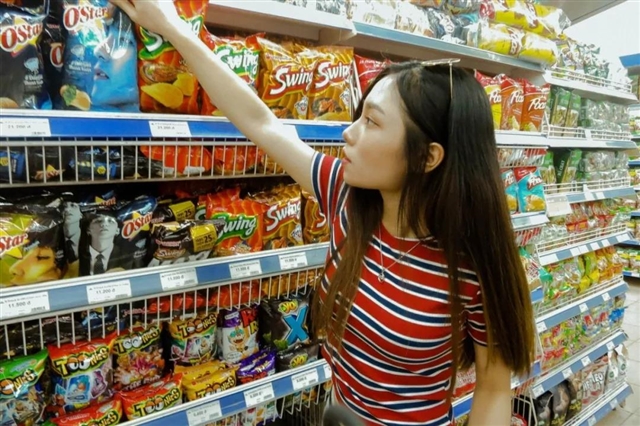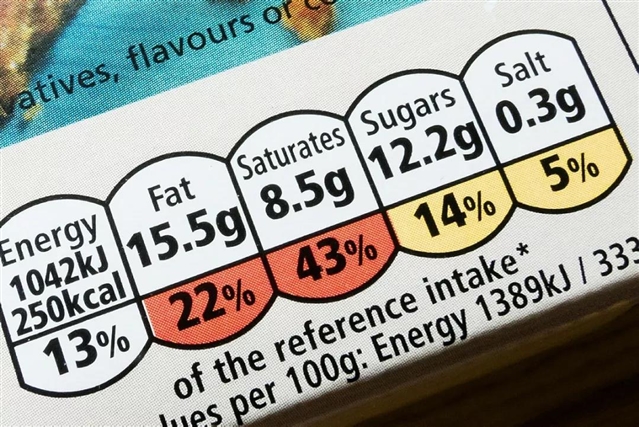|
|
| 写着“低脂”“无糖”的食品真的能带来健康吗?未必!| BMC Public Health |
|
论文标题:Systematic review of the impact of nutrition claims related to fat, sugar and energy content on food choices and energy intake
期刊:BMC Public Health
作者:Laura H. Oostenbach, Esther Slits et al.
发表时间:2019/10/15
DOI:10.1186/s12889-019-7622-3
微信链接:点击此处阅读微信文章
最近,在开放获取期刊BMC Public Health上发表的一篇系统性综述着眼于食品包装上营养声明所产生的影响,旨在了解营养声明在预防或导致超重和肥胖方面的作用。在接下来的分享中,作者Gary Sacks向我们介绍了他的工作以及相关结果带来的启示。

食品包装上的营养声明(例如“低脂”或“无糖”)可能导致人们增加这些产品的消费量和整体的能量摄入。倘若不健康的产品上印有这些声明,则可能会导致不健康的饮食和肥胖。因此,为了更广泛地改善人口饮食,政策制定者应该考虑限制包装食品上营养声明的使用。
什么是营养声明?
营养声明是产品包装上明示或暗示食品具有特定营养属性的相关声明,通常与脂肪、糖、维生素或矿物质的含量有关。它有别于描述食品或食物成分与健康或疾病相关的健康声明(例如“钙有助于形成强壮的骨骼”)。
在不同的国家,营养和健康声明的使用有所差异。一些司法管辖区,比如澳大利亚、新西兰、欧盟(EU)、加拿大和美国,对其使用进行了规范。
营养标签会影响饮食的选择
作为改善人口饮食和解决高度超重和肥胖的努力的一部分,在食品包装上提供营养信息(例如,通过营养标签和营养声称)越来越成为一种重要的政策选择。
人们对营养标签的影响进行了大量研究。已经表明,营养标签可以有效地赋予消费者选择更健康产品的能力。然而在此之前,营养和健康声明在预防超重和肥胖中的特殊作用尚未被明确描述。
我们最新的综述着眼于脂肪、糖和能量含量相关的营养声明对食物选择各个方面的影响,以了解它们如何有助于预防超重和肥胖。

脂肪、糖和能量含量相关的营养声明对食物选择的影响
我们的综述包括了11项相关的研究工作。其中三项研究探讨了营养声明对人们所感知到的产品健康性的影响。所有这些研究都发现,产品上的营养声明使消费者觉得这些产品更健康。其他两项研究进一步评估了营养声明对“味道”的影响。这些研究发现,人们会倾向于认为具有营养声称的产品不是那么美味,尽管他们并不总能注意到味道的差异。
还有两项研究聚焦于大众眼中带有营养声明产品的适当份量和能量含量。这些研究发现,人们认为具有营养声明的产品卡路里含量较低,还认为这些产品的适当份量远大于没有营养声明的产品。
另外三项研究调查了营养声明对购买意愿的影响。一项研究发现,人们更有可能想尝试带有“低脂”声明的产品。但是其他研究发现,这种影响因产品类别而异,在薯条上声称减脂会降低购买意愿,而在早餐谷物上声称减糖则没有影响。
剩余五项研究着眼于营养声明对食物消费的影响。所有这些研究都发现,“低脂”声明可能会导致人们消费更多具有该声明的产品。重要的是,这些研究都仅限于当下可获得选择来衡量营养声明对于消费的影响,因此,没有相关证据表明每天的总能量摄入会受到怎样的影响。
研究结果的启示
世界各地的政策制定者目前正在考虑一系列倡议来改善人口饮食和解决肥胖症。这篇综述提供的证据表明,与脂肪、糖和能量含量有关的营养声明可能导致食物的过度消费和随之而来的更高能量摄入。因此,政策制定者应考虑相关方案以减少营养声明潜在的负面影响。
目前,各国对营养声明的管理有所不同。欧盟正在考虑纳入特定的标准以限制对某些产品使用营养声明的计划。在澳大利亚,健康声明仅限于不符合健康标准的产品;但是,对可以使用营养声明的产品种类则没有限制。
尽管食品公司将营养声明作为市场营销的机会,但还是有一些公司自愿限制其产品上营养声明的使用。例如,澳大利亚连锁超市Coles制定了一项政策,仅允许对符合某些健康标准的自有品牌产品使用营养声明。随着更多注意力聚焦在公司的社会影响上,需要进一步审查利用营养声明刺激不健康食品销售的行为。
摘要:
Background
As part of efforts to address high levels of overweight and obesity, the provision of nutrition information (e.g., through nutrition labels and nutrition claims) on food packages has increasingly become an important policy option. This study aimed to assess the influence of nutrition claims relating to fat, sugar, and energy content on product packaging on several aspects of food choices to understand how they contribute to the prevention of overweight and obesity.
Methods
A systematic literature review was conducted using the online databases EBSCOhost Global Health, EBSCOhost Medline, ScienceDirect, Scopus, PsycINFO and Embase. Studies were included if they measured the influence of nutrition claims relating to fat, sugar, and energy content on outcomes related to body weight, and were published between January 2003 and April 2018.
Results
Eleven studies were included in the review. Results showed that nutrition claims can influence the knowledge of consumers with respect to perceived healthfulness of products, as well as expected and experienced tastiness of food products – making food products with nutrition claims seem healthier and less tasty. Nutrition claims can make the appropriate portion size appear to be larger and lead to an underestimation of the energy content of food products. Nutrition claims can also influence food purchase intentions, moderated by the perceived healthfulness of the relevant food products and the health consciousness of individuals. Nutrition claims were also found to have an impact on food purchases, to influence ‘consumption guilt’ (i.e., feeling of guilt associated with eating), and to increase consumption, moderated by the weight status of individuals. These influences were shown to vary depending on the type of claim and food carrying the claim.
Conclusions
There is evidence that, while nutrition claims may lead some consumers to improve their nutrition knowledge and select healthier options, it may also lead consumers to increase food consumption and overall energy intake. This may run counter to efforts to address overweight and obesity.
(来源:科学网)
特别声明:本文转载仅仅是出于传播信息的需要,并不意味着代表本网站观点或证实其内容的真实性;如其他媒体、网站或个人从本网站转载使用,须保留本网站注明的“来源”,并自负版权等法律责任;作者如果不希望被转载或者联系转载稿费等事宜,请与我们接洽。